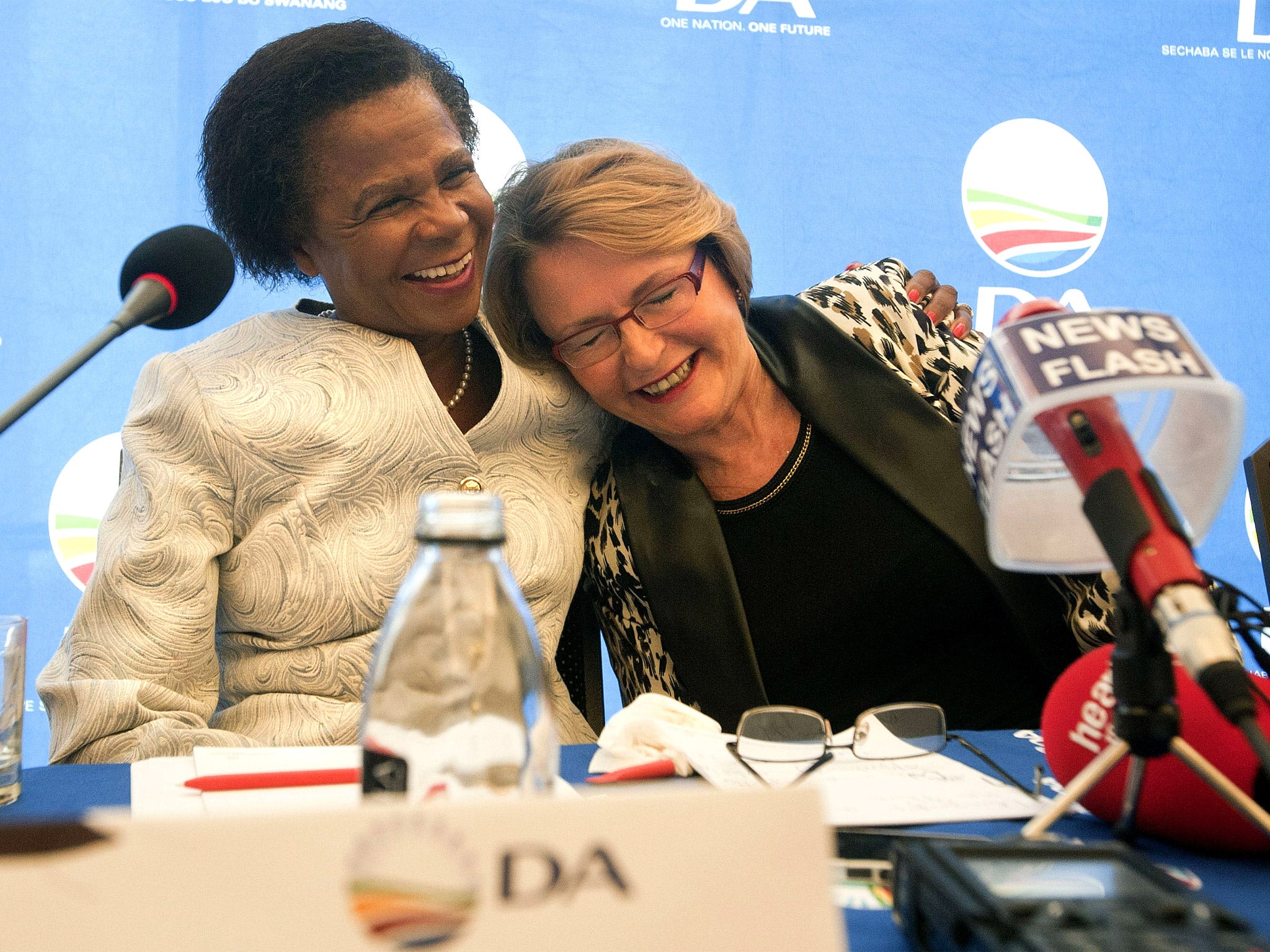South Africa elections: Opposition parties unite to challenge ruling ANC

South Africa’s main opposition party has merged with a smaller group to jointly challenge the ruling ANC in elections in April.
The presidential candidate of the new coalition is Mamphela Ramphele, a former anti-apartheid activist who was close to Steve Biko, the Black Consciousness leader who died in police custody in 1977. Ms Ramphele, who was also a doctor, academic and World Bank executive, formed her own party last year but struggled to gain political momentum and said the merger with the larger Democratic Alliance was in the country’s best interests.
The Democratic Alliance, led by Helen Zille, has been perceived as “too white”.
Some South Africans had questioned how Nelson Mandela’s death in December would affect the country as political forces seek to harness a national identity forged in the struggle against white rule while addressing increasing worries about the future.
Ms Ramphele told a news conference in Cape Town: “The death of Nelson Mandela has changed many things for South Africa. It has caused us to reflect on our journey over the last 20 years, on the progress we have made, and on the opportunities utilised and lost.”
President Jacob Zuma and the ANC, the liberation movement once led by Mr Mandela, are the electoral front-runners but they have lost some support because of corruption, poverty, unemployment and police brutality.
AP
Join our commenting forum
Join thought-provoking conversations, follow other Independent readers and see their replies
Comments
Bookmark popover
Removed from bookmarks